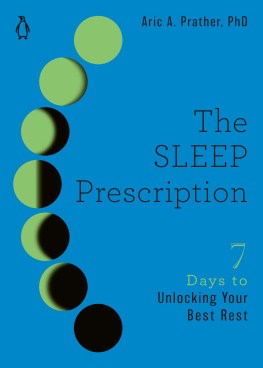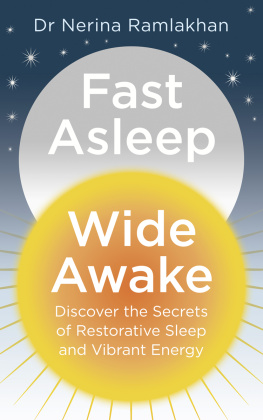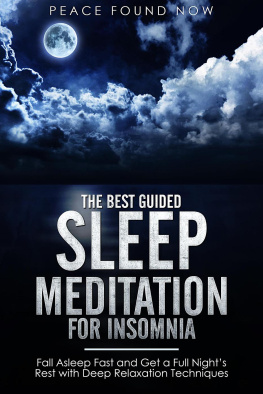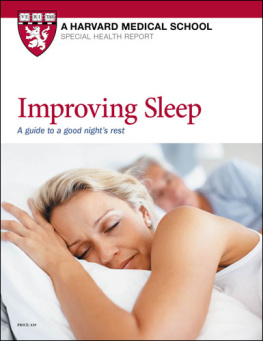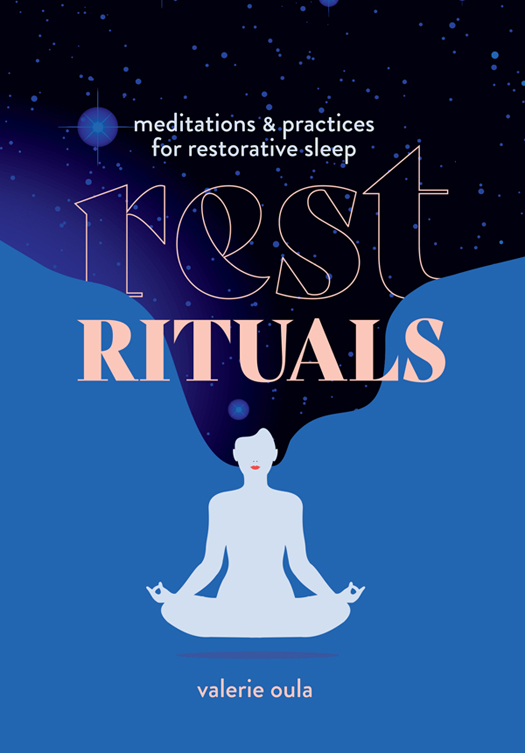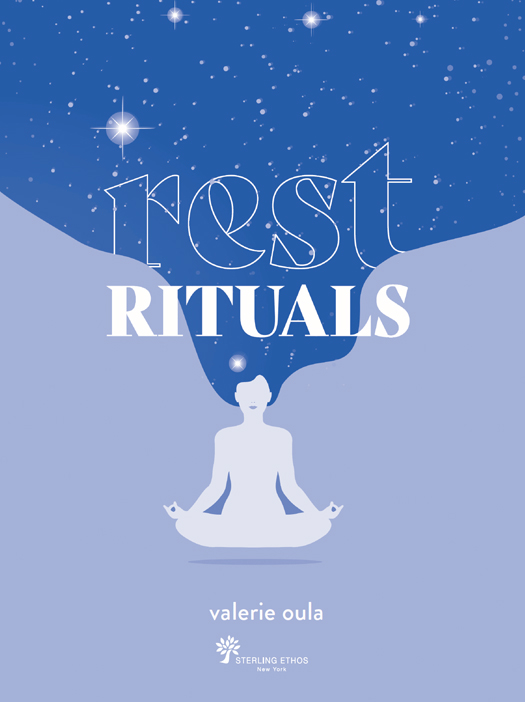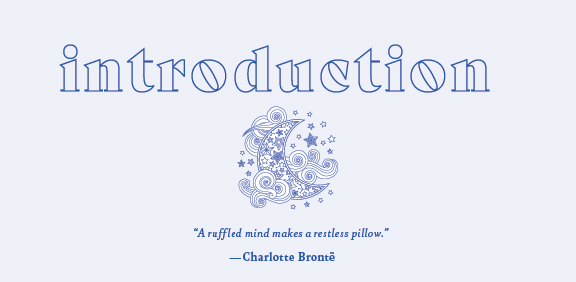STERLING ETHOS and the distinctive Sterling Ethos logo are registered trademarks of Sterling Publishing Co., Inc.
All rights reserved. No part of this publication may be reproduced, stored in a retrieval system, or transmitted in any form or by any means (including electronic, mechanical, photocopying, recording, or otherwise) without prior written permission from the publisher.
For information about custom editions, special sales, and premium and corporate purchases, please contact Sterling Special Sales at .
Slumber is not only beneficial but a necessity for living beings. Cats generally spend sixteen hours of the day sleeping, and newborn babies around the same. Honeybees sleep five to eight hours. Giraffes get by on only about thirty minutes of sleep, while a certain species of bat sleeps almost nineteen hours. According to a 2016 study from the Vienna University of Technology, even trees sleep as wellthey may not tuck themselves in at night, but, like us, they go through a cycle of activity and inactivity that is tied to the movement of the sun.
We all know that our bodies are attuned to the change between day and night, and that in order to restore our energy we need good, quality restbut accessing that kind of slumber can be challenging. Weve all experienced a good nights sleep as well as a terrible nights sleep, so we know the difference it can make. When we sleep well through the night, we wake up in the morning ready to meet the day. And when restful sleep eludes us, we definitely feel it the next day. The autonomic nervous system regulates our bodies automatic and involuntary functions like heartrate and breathing. It can be primarily divided into two parts: the sympathetic nervous system and the parasympathetic nervous system. We are meant to flow between these two branches. Our sympathetic system is like stepping on the gas and our parasympathetic system is like stepping on the brakes. So much of contemporary life leaves our sympathetic nervous system, which controls our fight-or-flight response, overwrought, and it can seem like it is always on. During stressful periods in life, it can get to the point where we no longer know how to regulate our sympathetic nervous system and engage our parasympatheticthat is, we need to rest and digest, and we just cant get there. In other words, many of us dont know how to relax, and that also means many of us arent sleeping well.
More technology can keep us connected, but the downside is that it often keeps us working longer hours. Its easy to get hooked on the infinite scroll of our smartphones: anxiety is at an all-time high. And that doesnt even address the effects of a global pandemic.
Deep, restful sleep seems more elusive than ever. Thankfully, there are sleep practices to make the promise of quality rest more approachable. To counter the relentless pace of tech and the hustle mentality of a busy life, mind-body tools are more important than ever to stay centered, calm, and collected.
Would you like to feel more centered?
Would you like to feel more calm and collected?
Would you like easy tools to do so?
With this book, we will explore energy practices to help make better sleep possible. And through consistent practice, we can take the intention of better sleep from possibility to probability.
Welcome to Rest Rituals. A ritual is a time-honored tradition. A ritual is where you can make the everyday sacred. It is an opportunity to infuse the everyday with meaning. It is an opportunity for reflection through action. And maybe in our busy lives, we can begin to invite more space and spaciousness into the everyday and approach sleep in a more sacred way.


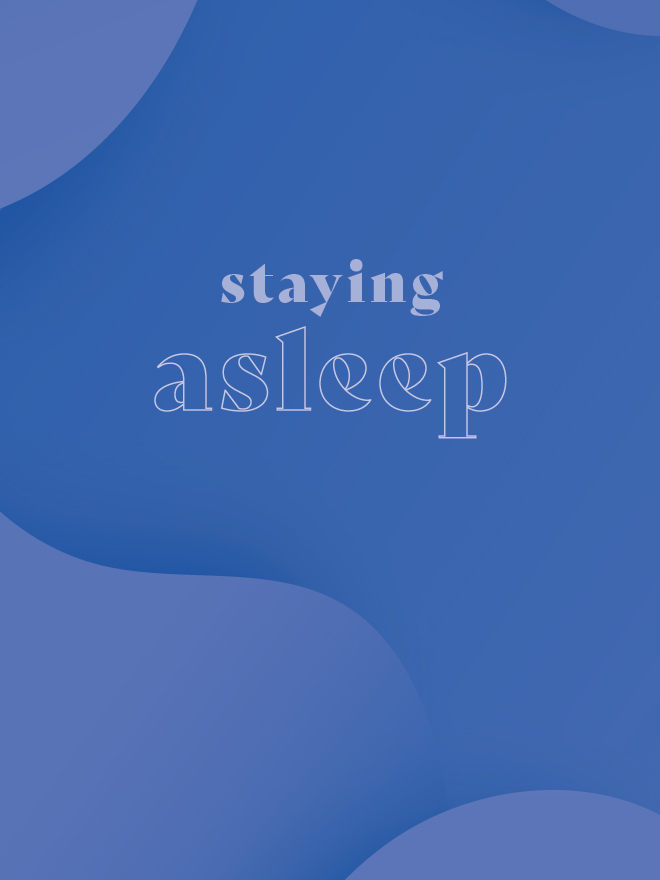

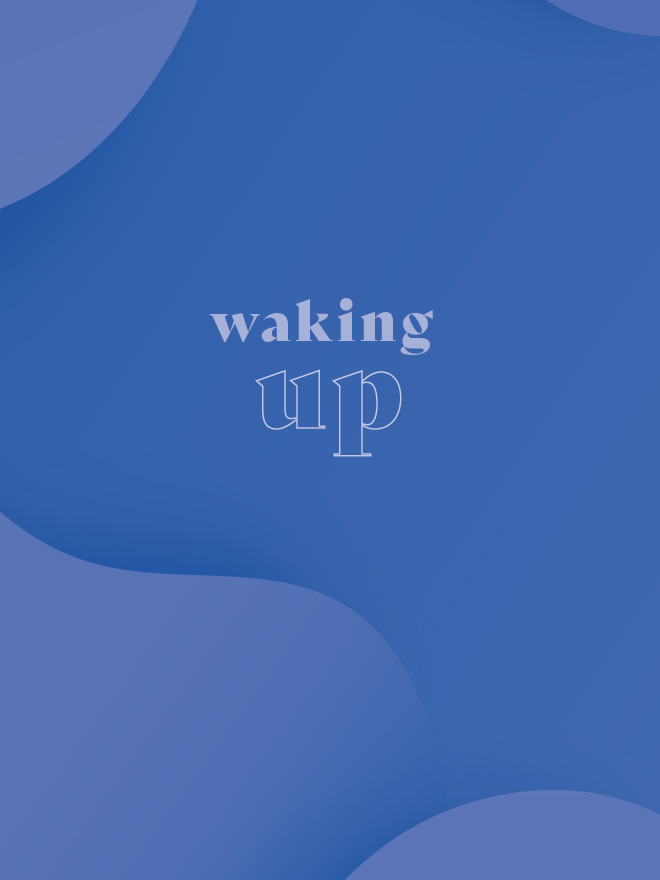
When I told my eighty-eight-year-old grandmother about this book, she was a little bit skeptical as to why it was even necessary. She had this to share about bedtime: You lie down in bed and you just forget it, forget it all, let it go. If only it were that easy!
But why is sleep so hard to come by? The simple answer is stress. In the world of energy medicine, stress is an imbalance of energyyou have too much or too little. Poor-quality rest is often due to stress. When we are able to invite balance into our system, we can sleep more soundly.
Are you familiar with the term sleep hygiene? It encompasses all the ways in which we can set ourselves up for better sleep. In the same way you maintain daily personal hygiene, like brushing your teeth and showering, sleep hygiene is a baseline for setting up a more ideal environment for rest.
Sleep hygiene begins with shutting off your laptop and phone an hour or so before bed. Studies have shown that the blue light from electronics disrupts melatonin production, which is essential for regulating sleep. So, if possible, start there. Here are some other first steps you might consider when laying down the groundwork for basic sleep hygiene:
Eat dinner at least three hours before bedtime in order to leave enough time to properly digest.
Use nighttime mode on computers and phones to lessen blue-light exposure as you build toward putting away the tech an hour before bed.
Keep the bedroom temperature on the cool side.
Make the room as dark as possible.
Store electronics outside of the bedroom so that they arent close to you at night (this keeps the room dark and eliminates distractions). This might also mean investing in a small bedside clock if you use your phone as an alarm.


